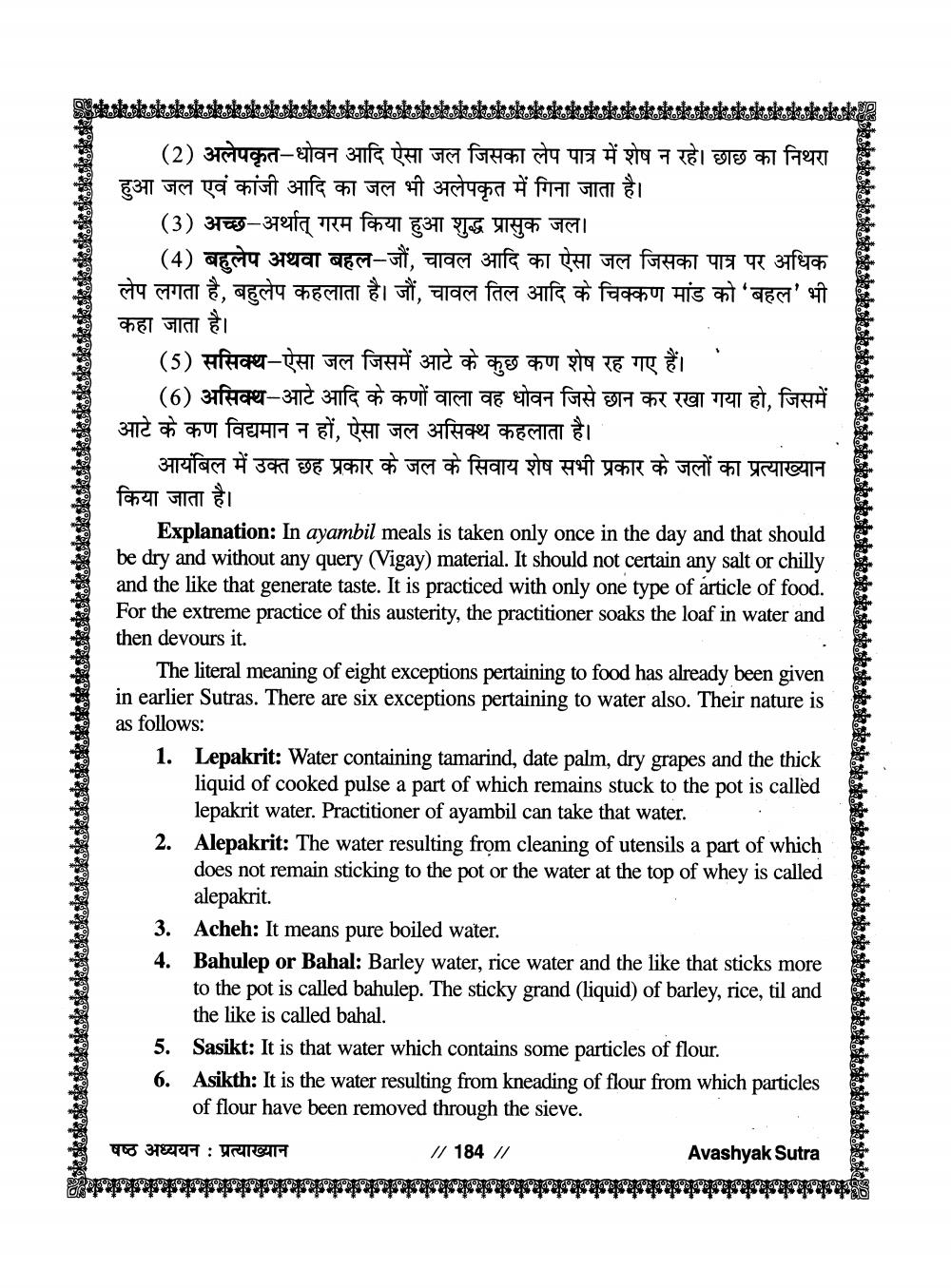________________
(2) अलेपकृत - धोवन आदि ऐसा जल जिसका लेप पात्र में शेष न रहे। छाछ का निथरा हुआ जल एवं कांजी आदि का जल भी अलेपकृत में गिना जाता है।
(3) अच्छ- - अर्थात् गरम किया हुआ शुद्ध प्रासुक जल ।
(4) बहुलेप अथवा बहल - जौं, चावल आदि का ऐसा जल जिसका पात्र पर अधिक लेप लगता है, बहुलेप कहलाता है। जौं, चावल तिल आदि के चिक्कण मांड को 'बहल' भी कहा जाता है।
(5) ससिक्थ - ऐसा जल जिसमें आटे के कुछ कण शेष रह गए हैं।
(6) असिक्थ - आटे आदि के कणों वाला वह धोवन जिसे छान कर रखा गया हो, जिसमें आटे के कण विद्यमान न हों, ऐसा जल असिक्थ कहलाता है।
आयंबिल में उक्त छह प्रकार के जल के सिवाय शेष सभी प्रकार के जलों का प्रत्याख्यान किया जाता है।
Explanation: In ayambil meals is taken only once in the day and that should be dry and without any query (Vigay) material. It should not certain any salt or chilly and the like that generate taste. It is practiced with only one type of article of food. For the extreme practice of this austerity, the practitioner soaks the loaf in water and then devours it.
The literal meaning of eight exceptions pertaining to food has already been given in earlier Sutras. There are six exceptions pertaining to water also. Their nature is as follows:
1. Lepakrit: Water containing tamarind, date palm, dry grapes and the thick liquid of cooked pulse a part of which remains stuck to the pot is called lepakrit water. Practitioner of ayambil can take that water.
2. Alepakrit: The water resulting from cleaning of utensils a part of which does not remain sticking to the pot or the water at the top of whey is called alepakrit.
3. Acheh: It means pure boiled water.
4. Bahulep or Bahal : Barley water, rice water and the like that sticks more
to the pot is called bahulep. The sticky grand (liquid) of barley, rice, til and the like is called bahal.
5. Sasikt: It is that water which contains some particles of flour.
6. Asikth: It is the water resulting from kneading of flour from which particles of flour have been removed through the sieve.
षष्ठ अध्ययन : प्रत्याख्यान
// 184 //
Avashyak Sutra




